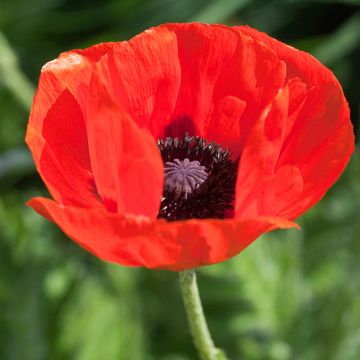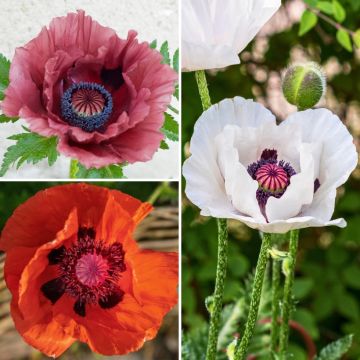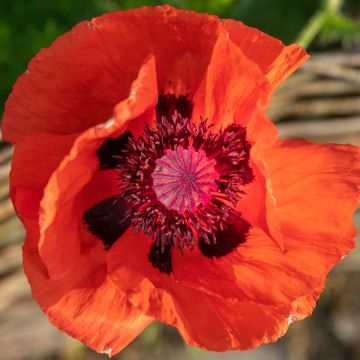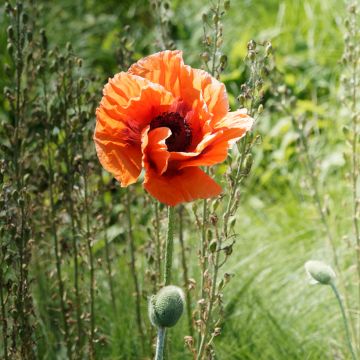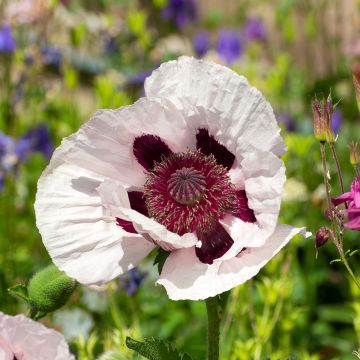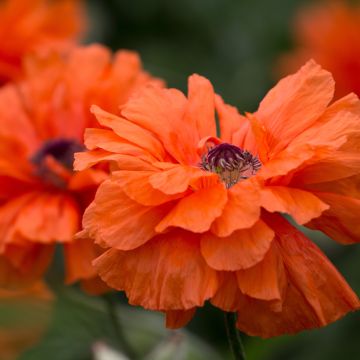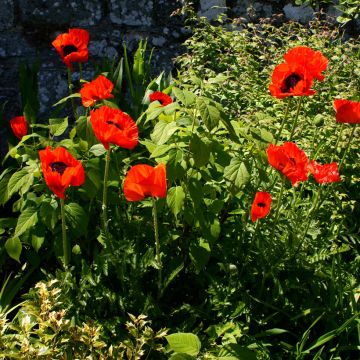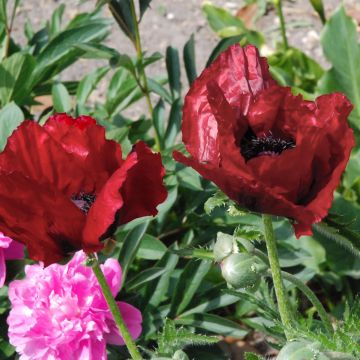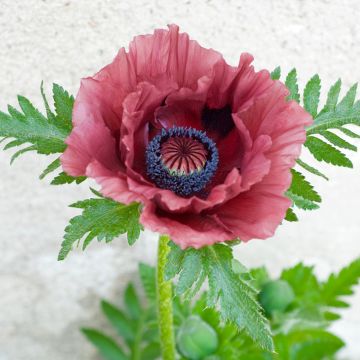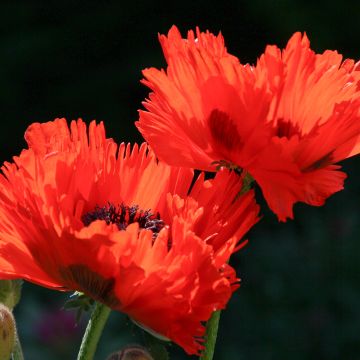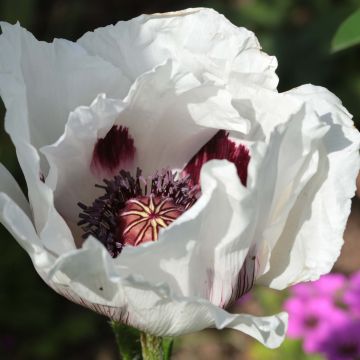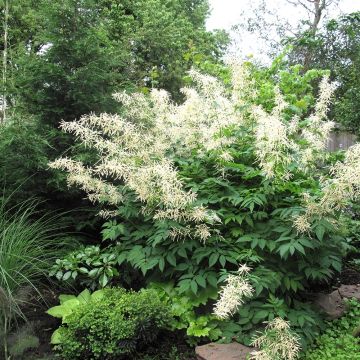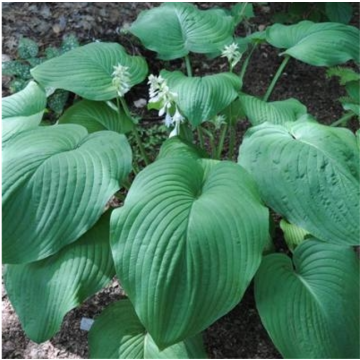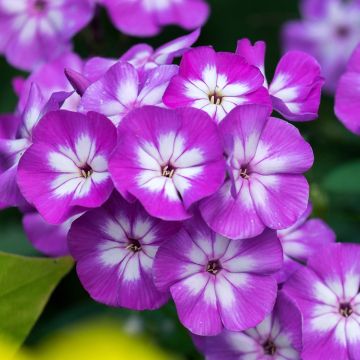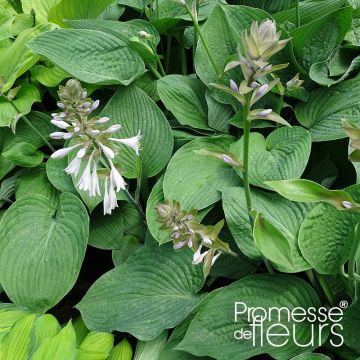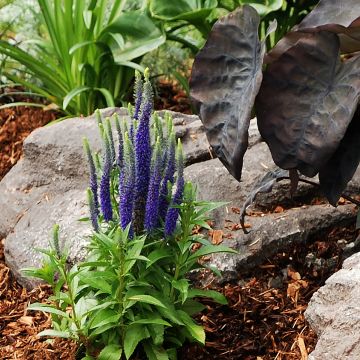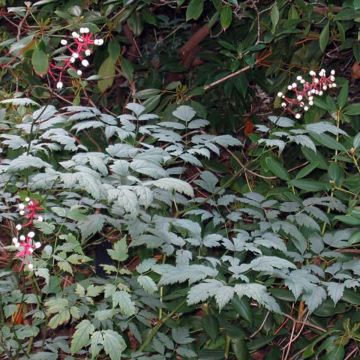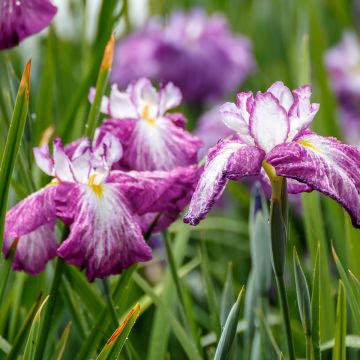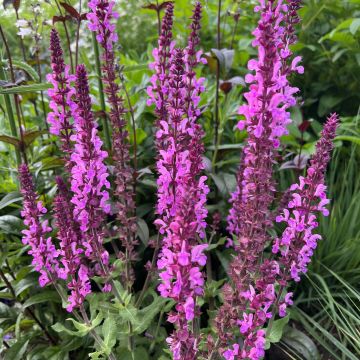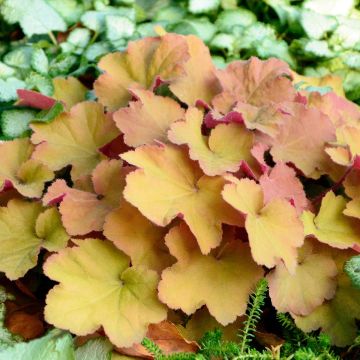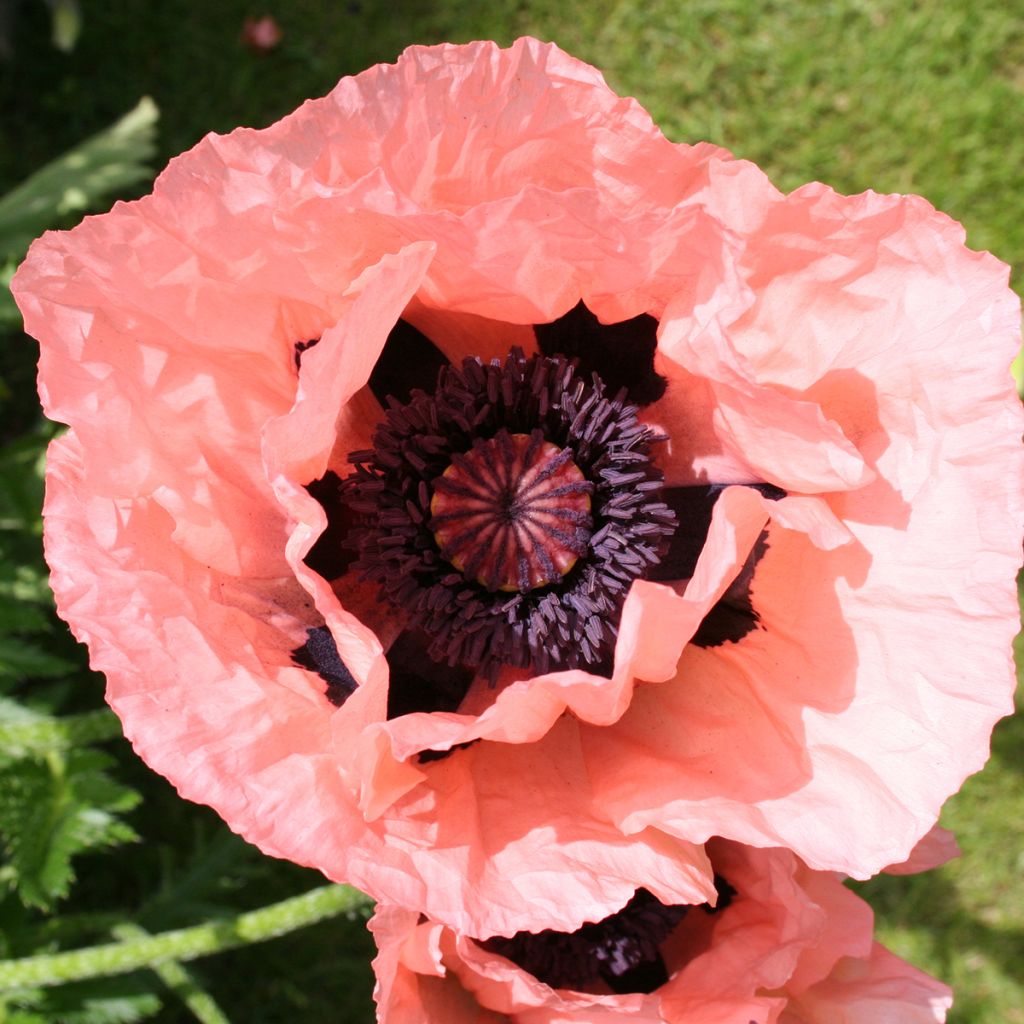

Papaver orientale Little Dancing Girl - Oriental Poppy
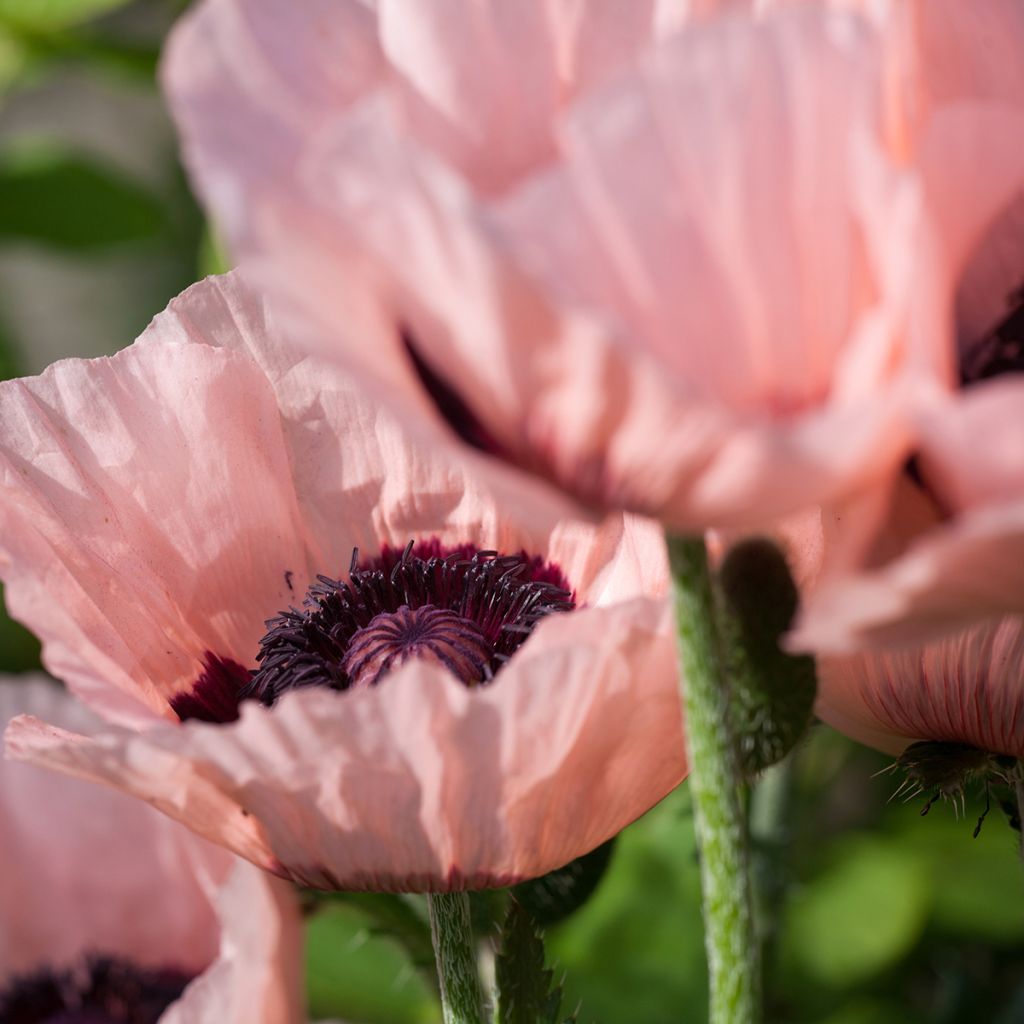

Papaver orientale Little Dancing Girl - Oriental Poppy
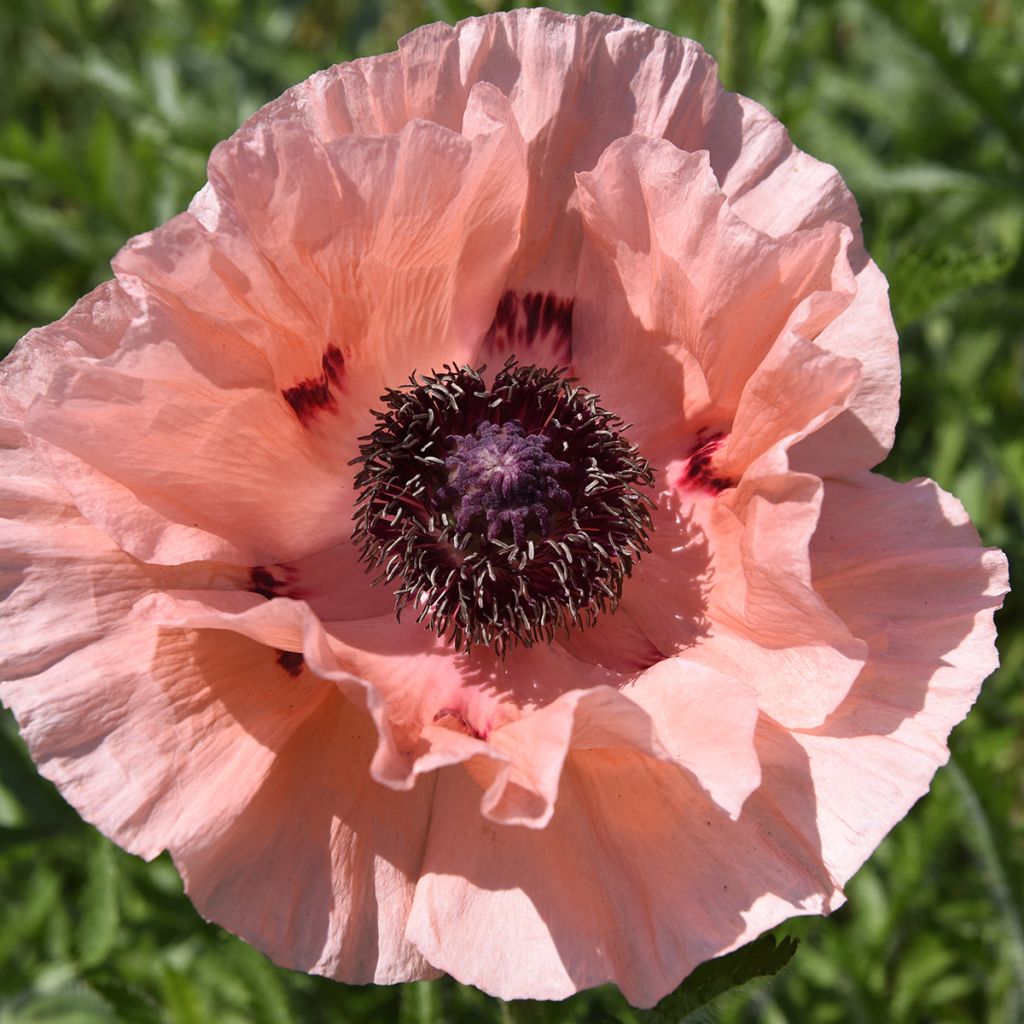

Papaver orientale Little Dancing Girl - Oriental Poppy
Papaver orientale Little Dancing Girl - Oriental Poppy
Papaver orientale Little Dancing Girl
Oriental Poppy
Why not try an alternative variety in stock?
View all →This plant carries a 12 months recovery warranty
More information
We guarantee the quality of our plants for a full growing cycle, and will replace at our expense any plant that fails to recover under normal climatic and planting conditions.
From €5.90 for pickup delivery and €6.90 for home delivery
Express home delivery from €8.90.
From €5.90 for pickup delivery and €6.90 for home delivery
Express home delivery from €8.90.
Does this plant fit my garden?
Set up your Plantfit profile →
Description
The Papaver orientale 'Little Dancing Girl' is a variety of Oriental Poppy with irresistible charm. From a compact clump of beautiful green dissected leaves emerge medium-sized stems that bear large flowers with slightly wavy petals. Their soft pink color is enhanced by macules and a dark red heart, creating an elegant contrast that never fails to impress from May to July. This variety will thrive in a diverse flower bed and can also be grown in a container on a terrace.
The Poppy or Papaver is a member of the Papaveraceae family, which includes 42 genera and 775 species, many of which are beautiful flowering plants like Meconopsis with unreal blue flowers in certain species. The Oriental Poppy or Tournefort's Poppy is a perennial plant native to Asia Minor, introduced to France in the early 18th century. The botanical species grows from the Caucasus to Iran, passing through Turkey, where it forms perennial clumps that die back in winter and reappear in spring. Each wild plant develops a few hairy stems that emerge from a compact clump of dissected leaves, each bearing a solitary flower. With a diameter of 10 to 15 cm (4 to 6in), the flower consists of 4 to 6 petals, mostly red in color, but also white, orange, or lavender. Flowering begins in late May and is interrupted in July by the heat prevailing in these regions.
The Papaver orientale 'Little Dancing Girl' is one of the many horticultural varieties derived from the botanical species. It forms a compact clump about fifty centimeters tall when in bloom, and 35 to 40 cm (14 to 16in) wide. The long, rough-textured leaves, ranging from medium to dark green, are deeply lobed and form a vegetation mass 35 cm (14in) tall. From May onwards, floral stems rise above the foliage, 50 cm (20in) above the ground, each bearing a single, solitary flower of great beauty. Resembling our wild Poppies, the corollas, about ten cm in diameter, display a beautiful soft pink color, with undeniable romantic charm. The slightly crumpled petals evoke the texture of crepe paper and are adorned in their center with a dark red spot of great effect. The central crown of stigmas surrounded by a ring of stamens is of the same color, creating a strong and stylish contrast with the pink corolla. Flowering occurs from May to July, after which the foliage partially or completely dries up depending on the intensity of the heat, only to reappear in autumn or even spring.
This Oriental Poppy 'Little Dancing Girl' will beautify a terrace when planted in a decorative pot and provide lovely flowers for bouquets. It will also be perfect in the foreground or background of a diverse flower bed with various perennials and bushes, in a sunny location. You can create a stunning scene by pairing it with some Iris germanica, whose spring flowering displays all the colors of the plant kingdom according to the existing varieties. For the beginning of the season, Corsican Spurge (Euphorbia myrsinites) will form a bluish carpet with flowers ranging from gold to chartreuse green.
Report an error about the product description
Flowering
Foliage
Plant habit
Safety measures
Botanical data
Papaver
orientale
Little Dancing Girl
Papaveraceae
Oriental Poppy
Cultivar or hybrid
atteintescutaneomuqueuses
Cette plante peut provoquer l'apparition de réactions cutanées indésirables, une atteinte des yeux, ou des difficultés respiratoires si elle est ingérée.
Ne la plantez pas là où de jeunes enfants peuvent évoluer. Evitez tout contact avec la peau: privilégiez l'emploi de gants pour la manipuler. En cas de contact, lavez-vous soigneusement les mains et rincez abondamment à l'eau la zone concernée. Lavez les vêtements entrés en contact. En cas de réaction cutanée, contactez votre médecin ou le centre antipoison le plus proche de chez vous. En cas d'atteinte étendue ou de difficultés respiratoires, appelez immédiatement le 15 ou le 112.Pensez à conserver l'étiquette de la plante, à la photographier ou à noter son nom, afin de faciliter le travail des professionnels de santé.
Davantage d'informations sur https://plantes-risque.info
Other Oriental Poppies (Papaver orientale)
Planting and care
The 'Little Dancing Girl' Oriental Poppy is a very hardy plant, able to withstand temperatures as low as -20°C (-4°F). Like most poppies, it is easy to grow. Any soil will do, even chalky soil, as long as it is well-drained. This plant dreads heavy soils saturated with water in winter. Poor soil is preferable to overly rich soil, which would promote vegetative growth at the expense of flowering. This compact variety can also be grown in a pot or container. However, choose a deep enough model so that its fleshy and deep roots can descend. Install it in full sun without fail. Once well established, this Poppy is difficult to eliminate, because if you try to move a clump, the fragments of roots left in the soil will give rise to a new plant.
Planting period
Intended location
Care
This item has not been reviewed yet - be the first to leave a review about it.
Bare-root perennials
Haven't found what you were looking for?
Hardiness is the lowest winter temperature a plant can endure without suffering serious damage or even dying. However, hardiness is affected by location (a sheltered area, such as a patio), protection (winter cover) and soil type (hardiness is improved by well-drained soil).

Photo Sharing Terms & Conditions
In order to encourage gardeners to interact and share their experiences, Promesse de fleurs offers various media enabling content to be uploaded onto its Site - in particular via the ‘Photo sharing’ module.
The User agrees to refrain from:
- Posting any content that is illegal, prejudicial, insulting, racist, inciteful to hatred, revisionist, contrary to public decency, that infringes on privacy or on the privacy rights of third parties, in particular the publicity rights of persons and goods, intellectual property rights, or the right to privacy.
- Submitting content on behalf of a third party;
- Impersonate the identity of a third party and/or publish any personal information about a third party;
In general, the User undertakes to refrain from any unethical behaviour.
All Content (in particular text, comments, files, images, photos, videos, creative works, etc.), which may be subject to property or intellectual property rights, image or other private rights, shall remain the property of the User, subject to the limited rights granted by the terms of the licence granted by Promesse de fleurs as stated below. Users are at liberty to publish or not to publish such Content on the Site, notably via the ‘Photo Sharing’ facility, and accept that this Content shall be made public and freely accessible, notably on the Internet.
Users further acknowledge, undertake to have ,and guarantee that they hold all necessary rights and permissions to publish such material on the Site, in particular with regard to the legislation in force pertaining to any privacy, property, intellectual property, image, or contractual rights, or rights of any other nature. By publishing such Content on the Site, Users acknowledge accepting full liability as publishers of the Content within the meaning of the law, and grant Promesse de fleurs, free of charge, an inclusive, worldwide licence for the said Content for the entire duration of its publication, including all reproduction, representation, up/downloading, displaying, performing, transmission, and storage rights.
Users also grant permission for their name to be linked to the Content and accept that this link may not always be made available.
By engaging in posting material, Users consent to their Content becoming automatically accessible on the Internet, in particular on other sites and/or blogs and/or web pages of the Promesse de fleurs site, including in particular social pages and the Promesse de fleurs catalogue.
Users may secure the removal of entrusted content free of charge by issuing a simple request via our contact form.
The flowering period indicated on our website applies to countries and regions located in USDA zone 8 (France, the United Kingdom, Ireland, the Netherlands, etc.)
It will vary according to where you live:
- In zones 9 to 10 (Italy, Spain, Greece, etc.), flowering will occur about 2 to 4 weeks earlier.
- In zones 6 to 7 (Germany, Poland, Slovenia, and lower mountainous regions), flowering will be delayed by 2 to 3 weeks.
- In zone 5 (Central Europe, Scandinavia), blooming will be delayed by 3 to 5 weeks.
In temperate climates, pruning of spring-flowering shrubs (forsythia, spireas, etc.) should be done just after flowering.
Pruning of summer-flowering shrubs (Indian Lilac, Perovskia, etc.) can be done in winter or spring.
In cold regions as well as with frost-sensitive plants, avoid pruning too early when severe frosts may still occur.
The planting period indicated on our website applies to countries and regions located in USDA zone 8 (France, United Kingdom, Ireland, Netherlands).
It will vary according to where you live:
- In Mediterranean zones (Marseille, Madrid, Milan, etc.), autumn and winter are the best planting periods.
- In continental zones (Strasbourg, Munich, Vienna, etc.), delay planting by 2 to 3 weeks in spring and bring it forward by 2 to 4 weeks in autumn.
- In mountainous regions (the Alps, Pyrenees, Carpathians, etc.), it is best to plant in late spring (May-June) or late summer (August-September).
The harvesting period indicated on our website applies to countries and regions in USDA zone 8 (France, England, Ireland, the Netherlands).
In colder areas (Scandinavia, Poland, Austria...) fruit and vegetable harvests are likely to be delayed by 3-4 weeks.
In warmer areas (Italy, Spain, Greece, etc.), harvesting will probably take place earlier, depending on weather conditions.
The sowing periods indicated on our website apply to countries and regions within USDA Zone 8 (France, UK, Ireland, Netherlands).
In colder areas (Scandinavia, Poland, Austria...), delay any outdoor sowing by 3-4 weeks, or sow under glass.
In warmer climes (Italy, Spain, Greece, etc.), bring outdoor sowing forward by a few weeks.

































